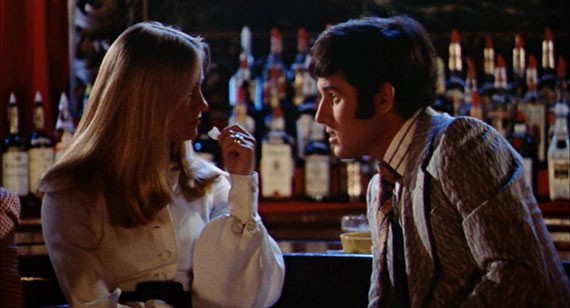Elaine May traveled and told stories on the Yiddish theater circuit even
before she was born. In 1932, Jack and Ida Berlin welcomed baby Elaine in
Philadelphia, PA. After Jack’s untimely passing in 1942, Ida and her daughter
moved to Los Angeles. At age sixteen, young Elaine married Marvin May and had
her only daughter, Jeannie Berlin, who was raised by her grandmother.
A year
later, Elaine divorced her husband and packed up to move to Chicago.
In Chicago, May met longtime collaborator Mike Nichols. “Elaine has a
wonderful motto,” Nichols once told The New York
Times’ Barbara Gelb. “’The only safe thing is to take a chance.’” Both May
and Nichols joined a local improv troupe, The Compass Players (later known as
Second City). In 1956 Nichols and May moved their act to New York’s prominent
comedy clubs. They rocketed to TV and Radio, releasing multiple comedy albums
of their performances.
In
1960 their Broadway show, An Evening with Mike Nichols and Elaine
May, debuted to great success, which continued until Nichols appeared in the stage production A Matter of Success, written by May. Nichols told Gelb
that the play “fractured our relationship.” He recalled, “I was onstage, she was in the
audience watching me, judging me. As soon as we weren’t in balance, equals on
the stage, we flew apart…. When Elaine and I split up, I didn’t know what I was.
I was the left-over half of something.”
Nichols and May’s comedic partnership ended in 1962, the same year
that May married Sheldon Harnick. As with her previous marriage, she divorced
Harnick within a year. The following year, she found a happy partnership with
psychoanalyst David L. Rubinfine, who she remained married to until his death
in 1982. May wrote several plays and gained success as a stage director. She
also dabbled in acting for film before making her motion-picture directing
debut with The New Leaf (1971),
staring Walter Matthau. May, who also starred in the film, tussled with
Paramount over final cut, eventually disowning the picture and its successes.
May’s
second film, the only one she didn’t write, was Neil Simon’s The Heartbreak Kid (1972). May then directed
an adaptation of her play Mikey and Nicky
(1976). In a retrospective review, Caryn James of The New York Times noted that the director’s “rampant perfectionism often led to budget overruns, feuds with the
studios, and lawsuits that flew both ways.” James describes how during the
editing of Mikey and Nicky, May
purposefully hid the footage until the studio brought in a legal team to get it
back.
May picked up her pen again as a co-writer with Warren Beatty on Heaven Can Wait (1978). The film gained
her several award nominations, including an Oscar nod for Best Adapted Screenplay. Her
directing career came to an unfortunate end in 1987 with Ishtar, starring Beatty and Dustin Hoffman. As Caryn James puts it,
“Whether she abandoned Hollywood or Hollywood abandoned her, it was a great
loss for filmgoers that she stopped directing…. Four films doesn’t seem enough
from a director of such restless creativity.”
May never directed for film
again, but after reuniting with Nichols to star in a 1980 revival of Who’s Afraid of Virginia Woolf?, she continued their partnership as
a writer on The Birdcage (1996) and Primary Colors (1998), earning her
second Oscar nomination.
Eric Goldstein for the Jewish Women’s Archive quotes May as
saying, “Directing is a way of looking at something and then communicating it…. It would be hideous to think that either sex took a script and in any way
pushed it toward any point of view other than the author’s. I don’t think it’s
important whether you’re a man, a woman or a chair.” In July 2013 May, along
with seven other prominent artists, was awarded a National Medal of Arts.
She
continues her work as a playwright and humorist.
Join us Friday, September 26th as Seeking Our Story celebrates Elaine May with The Heartbreak Kid. The film screens as part of MiMoDa Studio’s Friday Night Film Club and is sponsored by @TheDirectorList.
Doors open at 7:30 PM, and the film starts at 8 PM. This is a community screening with donations accepted at the door. Please RSVP.
Samantha Shada is a Los Angeles based story teller and artistic entrepreneur. She produces the Seeking Our Story series, screening an alternative approach to film history by highlighting the works of women directors.







